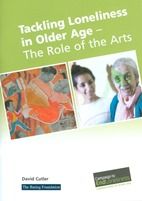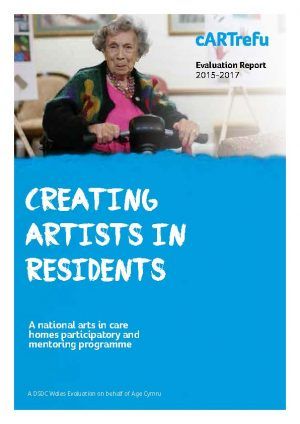To welcome the Be More Us campaign, I would like to argue why the arts are so important in making meaningful connections with older people.
When we first started our decade long funding programme for arts and older people, it struck me that when I went to visit the work we were funding, artists would often start off by talking about the art they were creating with older people, but older participants would almost always begin our conversation by saying how much the new friendships they were making meant to them.
We sought to argue why this is the case in our 2013 joint publication with the Campaign to End Loneliness Tackling Loneliness in Older Age – The Role of the Arts. Most participatory art forms are by their nature social, such as singing in a choir (A Choir in Every Care Home) or making drama (A new form of theatre). Arts can very often reveal new aspects of someone’s history in reminiscence work or more generally their passions and concerns, such as by the use of the Timeslips programme used by Equal Arts and many others.
It is sometimes underestimated how lonely we can be when surrounded by others – what matters is the quality of relationships. So arts in care homes when done well are always a great way for care workers and residents to get to know each other better. This has been well demonstrated in the major programme of artists in residence in Wales – cARTrefu – funded with the Arts Council Wales. Being a carer for someone, perhaps living in the community with dementia, can certainly be a major undertaking and quite often an isolating one. The arts can either bring a carer and older person together in a new way, for instance the Royal Academy’s In Mind art appreciation sessions or offer a creative respite as in a project for carers to produce a radio play in Belfast.
Our joint programme with the Arts Council Northern Ireland has in particular emphasised the importance of tackling loneliness including in rural areas. This resulted in a publication in 2015 called Not So Cut Off with a series of great case studies.
The new found national awareness of the significance of loneliness offers many opportunities. The Government’s anticipated cross departmental strategy needs to recognises the power of the arts in this respect.
We can all experience loneliness at any point in our lives, but I would certainly wish for an abundance of such initiatives for us all as we grow older.

